Someone on a homeschool moms' forum recently asked about living without a TV. I considered the question for maybe two seconds and then jumped right in with my usual long-winded response. ;-) Thought I should copy my little "essay" here to my blog as it actually pertains to something I think is a big part of why our kids have turned out to be the independent, self-motivated, great kids they are!
We have lived basically TV-free for our entire married lives -- that's 22 years. I say "basically" because it is not completely TV-free. We do have two TVs. One is in our bedroom, and one is in my husband's study/game room. In this way, the things are completely under our control. The TVs are only used for family videos once a week, occasional educational DVDs, a late-night video for my husband and me once in a while, and the odd game of football. (Btw, the TVs only "get" 2 channels -- ABC and PBS -- because we don't have them hooked up to cable.)
We do not feel our kids are oversheltered at all. They have seen many movies over the years, and we let the older kids watch movies that other parents might forbid. We talk with them about what we see and really make these things a learning experience. The teens keep up with national and international news through safe internet sites. However, I have always believed that the values and attitudes taught (overtly or subliminally) through modern TV shows are to be avoided at all costs. It is very evident to me (as I work with many homeschooled teens in drama) that there is a BIG difference between those who watch the TV and those who don't.
Not watching TV has always been easily accomplished around here. After all, the kids have never known any other way. It's not as if there was ever a question in their minds about the possibility of watching TV. It's just something we don't do. None of them can imagine having the time to watch the thing anyway because they are so busy living their lives. ;-) I can see that it would be much harder for a TV-watching family to transition away from it than it was for us just never to start the practice at all.
When my older kids were young, people said we'd never be able to keep them off of TV through their high school years. Then when they saw it actually happening, people said that the kids would turn out "weird" -- that they wouldn't be familiar with current cultural references and would look silly or stupid. Well, they were wrong on both counts. My oldest two went off to their respective secular colleges on full academic scholarships (because they'd had time to read and learn and follow their different passions....and play a lot, too!), without ever having watched a single sitcom.
Guess what? It didn't stop them from becoming leaders on their campuses and friends with people from all backgrounds. Their lack of TV has never hindered them for one moment. No, instead I see many ways it has helped them tremendously.
On the other hand, I do now give my teens a mini-"crash course" before they go off to college. My oldest was looked at just a little strangely when she had no idea who "Oprah" was. ;-)
The fact is that there are so many other valuable things that we and our kids can be doing with the time that is so easily wasted on TV. Yes, there is the "garbage in, garbage out" aspect of it all, too. I definitely agree that's important. However, even if there was a channel which offered only wonderful, fantastic programming 24 hrs. a day, I would have to severely limit it. Why settle for "good" when there is "better" to be had?
Having said that, I must tell you that there is one other way we use the TV. I do have my two youngest girls watch an educational DVD every day. This takes about 30-45 minutes, and I believe it is time wisely spent. First of all, I use the time to do something I could not do if they suddenly needed my attention. Secondly, they are actually learning things. One of the "movies" is a sign language tape, another is a foreign language show, another is a real trip to the zoo with up-close looks at all the animals (you know, the ones that are always sleeping in their caves when you go there in real life....!). Personally, I just love the zoo one because there are all these cute little kids and their parents walking around looking at the animals and being so smiley and happy. No one is crying, no one is tired and cranky, everyone is having a fantastic time, and the only thing we hear is wonderful classical music ;-)
The clincher for me though is that my kids are happy and calm when these shows are done. They are not wild; they are not bored. They are ready to move on to something else different and fun. The movie is just a very small element of their day. By the time they are 5 or 6, this little part of their routine will be in the past, and they will move into the stage of watching a family movie with the rest of us once a week.
I am not one to judge what others do about the TV. I have friends who have cable and a gazillion stations, and they tape all kinds of super-sounding shows off of the Discovery channel and really use the TV for interesting educational purposes. If it's not affecting their kids' behavior or attitudes, then I see absolutely no problem with that choice (and it's not my business anyway....). We sort of use Netflix that way to order good educational movies (like the exploration of the Titanic). I even have a whole set of DVDs from the Teaching Company on American History where the Professor dresses up in different costumes and uses different accents for each "lesson" he "acts" out for the audience, and it's been a fun, once-a-week supplement to our current American History studies.
But those kinds of shows are a whole different ballgame than sitcoms and primetime dramas. We grown-ups have a hard time controlling the addictive nature of this type of programming, so should we subject our children to the temptation? I know that we adults often don't perceive the subtle digs to our values and faith that are being constantly pushed on us by the Hollywood entertainment industry. So should we chance that type of crud being pumped into our kids? Still, it's a highly personal call to make, and I'm very glad we're only responsible to make it for our own families.
If others will give us the benefit of the doubt and assume that we have thought through this issue seriously and have come to the decision we believe is best for our own family, then I will attempt to give them that same courtesy. If others will trust that our decision to avoid TV shows (just like our decision to homeschool) reflects our own positive choice for our own family and is NOT a judgment of them and their "inferior" choices, then I will try to grant them that same trust and believe that they are not judging us as ignorant, overprotective fanatics. ;-)
One final thought: People often ask me how my kids have all become such great readers (which in turn has led to other academic "successes"....). I think it relates directly back to the fact that they don't watch TV. They still have vivid imaginations, they love a really good story, and they have the ability to focus intently.
By the way, they say that Mom reading aloud to them is the best entertainment of all. ;-)
Blessings,
Kim
Monday, February 18, 2008
Life without TV....
Labels:
A Simpler Life
Subscribe to:
Post Comments (Atom)
A Recipe For You to Try....
COFFEE KUCHEN
3 Cups unbleached flour (I use at least half whole wheat)
3 tsp. baking powder (non-aluminum)
1/4 tsp. Salt
1 1/4 tsp. cinnamon
2 Cups brown sugar
3 Tbsp. instant coffee, dry
1/2 Cup butter
1/2 Cup shortening (non-hydrogenated)
1 Cup milk (nonfat)
1/8 tsp. baking soda
2 eggs, slightly beaten
(Sometimes I replace some of the butter/shortening with liquid Butter Buds or "Lighter Bake" -- which is made from prune butter -- or with applesauce.)
This is supposed to be a very tall coffee cake, so it is baked in a small pan (8 or 9" square). However, I usually double the recipe and bake it in a 9x13 pan to feed my hungry crowd. You can also make the original recipe amount and bake it in 9 x 13 pan and just have a shorter coffee cake. I *do* think it tastes better when it is taller for some reason. The best thing about this coffee cake (other than its scrumptious taste!) is the velvety texture -- very different and very good.
Mix the 6 dry ingredients together. Cut in the butter and shortening with 2 knives or a pastry cutter until the mixture resembles pea-sized lumps. **Set aside** 1 Cup of this dry mixture for topping.
Now mix well together the milk, baking soda, and eggs. Stir into the dry mixture all at once with a wooden spoon just until combined -- don't overmix. Pour into greased pan, and sprinkle with reserved topping mixture.
Bake at 350 F for 50 to 65 minutes, depending on the pan and amount of coffee cake you made. Judge by the color (rich dark brown) and the usual "knife" test (coming out clean from center poke).
Enjoy! It's a little messy, but it will melt in your mouth.....
Favorite Read-Alouds for our Family..... in no particular order, and some are for older children...
- Little House series (Laura Ingalls Wilder)
- American Girls History series (various authors)
- Swiss Family Robinson (Johann David Wyss)
- Little Britches (Ralph Moody)
- Mama's Way (Thyra Ferre Bjorn)
- The Time Travelers (originally titled -- Gideon: The Cutpurse) (Linda Buckley-Archer)
- The Phantom Tollbooth (Norton Juster)
- The Mysterious Benedict Society (Stewart Trenton)
- The Mysterious Benedict Society and the Perilous Journey (Bk. 2 -- Stewart Trenton)
- Pilgrim's Progress (John Bunyan)
- Little Women (Louisa May Alcott)
- Deltora Quest series (Emily Rodda)
- Cheaper By the Dozen (Frank Gilbreth and Elizabeth Gilbreth-Carey)
- Chronicles of Narnia series (C.S. Lewis)
- A Wrinkle in Time (Madeleine L'Engle)
- Percy Jackson and the Olympians (Rick Riordan)
- Lord of the Rings series (J.R. Tolkien)
Our American History Journey
After years of studying world history intensively (while inevitably reading American historical fiction and biographies on the side because we just couldn't help ourselves), two years ago we decided to actually tackle our country's history from start to finish in a more "formal" manner. Of course, "formal" doesn't mean much around here.... ;-) Mostly it denotes that we have a chronological outline to follow. However, it does not preclude tangents. We love tangents. Fortunately for us, (for many reasons), we live in the United States, and our country's history is relatively short -- so there is plenty of time for those interesting tangents!
Also fortunately for us, we have found fantastic guidelines and enrichment ideas in the American Story themed units from WinterPromise.
http://www.winterpromise.com/
I discovered the WinterPromise company a few years ago when it first started, and I love it! It's exactly the type of curriculum I'd write if I was publishing one myself. ;-)
Actually, for many years, I've cobbled together just such a program for my own family. I've gathered what I consider the "best of the best" from many sources to make our learning interesting, thought-provoking, and fun. Now, WinterPromise does most of the work for me. Though, of course, being who I am, I can't resist tweaking things around a bit and adding this and that.
Still, WinterPromise is the only "curriculum" I recommend to homeschoolers who are not completely satisfied and excited with what they are currently doing. It's the kind of program that can be used in entirety or just in bits and pieces for enrichment. Plus, WP engages every learning style, and that element alone makes learning something all kids can enjoy!
So, as to American History, we began our journey in the fall of '07 with the explorers to the New World, and in May '08, we came to the end of our first homeschool year in a very long time (in other words, since the older kids were little...) that was focused on American history. It was enlightening, and it was great fun. We have a lot of wonderful memories, pictures, and stories.
This past year ('08/'09), we spent September through November studying the election process in an in-depth manner to coincide with the landmark campaign and election of our first African-American president. In December, we spent some time on the Gold Rush days of California, and then when January arrived, we decided to detour a bit. I made a big commitment to become the official National History Day County Coordinator, and 5 of my kids chose to compete in various categories. In addition, I actively recruited homeschooled students from my drama groups to participate with us in History Day.
The National History Day competition encourages children (6th-12th grades, and in CA, 4th/5th grades, too) to learn to research and analyze history as they prepare different sorts of projects (papers, documentaries, posters, exhibits, websites, or performances) for their county, state, and even National competitions. There is a different theme each year, and this year's theme is "The Individual in History: Actions and Legacies." I ended up with 20 students participating in our county's HD event, and it was so exciting. The kids chose to study the following individuals in history:
Samuel Morse
Louis Braille
Joan of Arc
Laura Bridgman
Helen Keller
Elizabeth Blackwell
Gen. George S. Patton
Amy Carmichael
Sarah Emma Edmonds
John James Audubon
Janusz Korczak
Gen. George H. Thomas
John Hart
Prince Henry the Navigator
Do you know who all these people are?! Do you really understand the legacies they have left to this world? These kids certainly do!
Several members of our county's team made it to the Finalist level at the California State competition, and a couple won special awards, and my son Ben actually won the gold medal in the Historical Paper category and will be competing at the National level in less than two weeks!
So this past semester was given over to establishing our county's History Day program. A couple of my own kids' "individuals" fit into the time frame we had reached at that point in our history study... mid-to-late nineteenth century. My 9 yo's Poster was on Louis Braille -- though not American, he did have a profound effect on America with his Braille language via Dr. Samuel Gridley-Howe who brought the 6-dot system back to the U.S. to use at his School for the Blind (Laura Bridgman being the first student he taught using Braille's methods). Interestingly, Jim's group drama about Helen Keller meshed perfectly with his Louis Braille studies, and we were all surprised to learn there was a *lot* we didn't know about the famous "miracle" child.
My 11yo Ellie Rose did her individual drama performance on Elizabeth Blackwell, the first American woman doctor, so that fit in perfectly with our studies, as we came to realize more fully how difficult such pioneer work was in the second half of the 1800s. We also learned that there was more than one side to the whole women's rights issue and found that a fascinating tangent to explore.
Ben's paper carried us back in time a bit to mid-to-late fifteenth century Portugal and Africa where Henry the Navigator was carrying out his military crusades and sponsoring exploration expeditions. Through his research, Ben discovered (and then enlightened us to the fact!) that those expeditions were actually what directly led to the explosion of the Atlantic Slave Trade in Europe.
Shannon's individual drama focused on Amy Carmichael and her work with the children in India (especially the temple girls). Her research highlighted for us what it means to take a stand against the status quo (in this case, both the caste system of India and the "traditional" ways the European missionaries of that time interactede with the people of India) in order to do what is right and best for people in dire need.
Deedee's paper on Janusz Korczak, the famous Polish Jewish pediatrician who ran an orphanage in the Warsaw ghettoes during WWII and was executed alongside his children at the Treblinka concentration camp, also inspired us to really think about what it means to make a difference in this world. Korczak's many books on children's rights live on to proclaim to the world that children are people NOW and deserve respect and fair treatment.
I will continue to coordinate the History Day local contest each year, and my kids will continue to participate in various categories, but there won't be the same need to give it so much time as the county program is now up and running. Therefore, we can get back to the second half of our American History studies! I'm really looking forward to starting things off with a bang as we take two great road trips.
On our first trip, in July, we'll drive through the old Gold Rush cities and experience firsthand what we studied last December. Then in late August, we'll be driving back to Washington, DC. to drop Deedee off at George Washington University for her first year of college. We plan to stick around a while and see all the memorials and museums, soaking in all that glorious American history. We'll also head over to Colonial Williamsburg for a couple of living history days before starting back home (though I hope to make some interesting stops on our way back to California, too...).
As I have time, I plan to post some of the activities, websites, and books we use and love this coming year in relation to our study of American history -- picking up with the Civil War in September and carrying on through WWII by the end of May, if all goes as planned. I will *try* to do this on regular monthly basis! We will be using the WinterPromise American Story 2 as our core guide, with supplements from all over the place, including the following great website:
www.guesthollow.com/homeschool/curriculum
Please check back regularly if you are interested in updates on our progress, and feel free to comment or email with any specific questions you have about our studies.
Hope this helps or inspires someone else out there to wade into history with relish!
Also fortunately for us, we have found fantastic guidelines and enrichment ideas in the American Story themed units from WinterPromise.
http://www.winterpromise.com/
I discovered the WinterPromise company a few years ago when it first started, and I love it! It's exactly the type of curriculum I'd write if I was publishing one myself. ;-)
Actually, for many years, I've cobbled together just such a program for my own family. I've gathered what I consider the "best of the best" from many sources to make our learning interesting, thought-provoking, and fun. Now, WinterPromise does most of the work for me. Though, of course, being who I am, I can't resist tweaking things around a bit and adding this and that.
Still, WinterPromise is the only "curriculum" I recommend to homeschoolers who are not completely satisfied and excited with what they are currently doing. It's the kind of program that can be used in entirety or just in bits and pieces for enrichment. Plus, WP engages every learning style, and that element alone makes learning something all kids can enjoy!
So, as to American History, we began our journey in the fall of '07 with the explorers to the New World, and in May '08, we came to the end of our first homeschool year in a very long time (in other words, since the older kids were little...) that was focused on American history. It was enlightening, and it was great fun. We have a lot of wonderful memories, pictures, and stories.
This past year ('08/'09), we spent September through November studying the election process in an in-depth manner to coincide with the landmark campaign and election of our first African-American president. In December, we spent some time on the Gold Rush days of California, and then when January arrived, we decided to detour a bit. I made a big commitment to become the official National History Day County Coordinator, and 5 of my kids chose to compete in various categories. In addition, I actively recruited homeschooled students from my drama groups to participate with us in History Day.
The National History Day competition encourages children (6th-12th grades, and in CA, 4th/5th grades, too) to learn to research and analyze history as they prepare different sorts of projects (papers, documentaries, posters, exhibits, websites, or performances) for their county, state, and even National competitions. There is a different theme each year, and this year's theme is "The Individual in History: Actions and Legacies." I ended up with 20 students participating in our county's HD event, and it was so exciting. The kids chose to study the following individuals in history:
Samuel Morse
Louis Braille
Joan of Arc
Laura Bridgman
Helen Keller
Elizabeth Blackwell
Gen. George S. Patton
Amy Carmichael
Sarah Emma Edmonds
John James Audubon
Janusz Korczak
Gen. George H. Thomas
John Hart
Prince Henry the Navigator
Do you know who all these people are?! Do you really understand the legacies they have left to this world? These kids certainly do!
Several members of our county's team made it to the Finalist level at the California State competition, and a couple won special awards, and my son Ben actually won the gold medal in the Historical Paper category and will be competing at the National level in less than two weeks!
So this past semester was given over to establishing our county's History Day program. A couple of my own kids' "individuals" fit into the time frame we had reached at that point in our history study... mid-to-late nineteenth century. My 9 yo's Poster was on Louis Braille -- though not American, he did have a profound effect on America with his Braille language via Dr. Samuel Gridley-Howe who brought the 6-dot system back to the U.S. to use at his School for the Blind (Laura Bridgman being the first student he taught using Braille's methods). Interestingly, Jim's group drama about Helen Keller meshed perfectly with his Louis Braille studies, and we were all surprised to learn there was a *lot* we didn't know about the famous "miracle" child.
My 11yo Ellie Rose did her individual drama performance on Elizabeth Blackwell, the first American woman doctor, so that fit in perfectly with our studies, as we came to realize more fully how difficult such pioneer work was in the second half of the 1800s. We also learned that there was more than one side to the whole women's rights issue and found that a fascinating tangent to explore.
Ben's paper carried us back in time a bit to mid-to-late fifteenth century Portugal and Africa where Henry the Navigator was carrying out his military crusades and sponsoring exploration expeditions. Through his research, Ben discovered (and then enlightened us to the fact!) that those expeditions were actually what directly led to the explosion of the Atlantic Slave Trade in Europe.
Shannon's individual drama focused on Amy Carmichael and her work with the children in India (especially the temple girls). Her research highlighted for us what it means to take a stand against the status quo (in this case, both the caste system of India and the "traditional" ways the European missionaries of that time interactede with the people of India) in order to do what is right and best for people in dire need.
Deedee's paper on Janusz Korczak, the famous Polish Jewish pediatrician who ran an orphanage in the Warsaw ghettoes during WWII and was executed alongside his children at the Treblinka concentration camp, also inspired us to really think about what it means to make a difference in this world. Korczak's many books on children's rights live on to proclaim to the world that children are people NOW and deserve respect and fair treatment.
I will continue to coordinate the History Day local contest each year, and my kids will continue to participate in various categories, but there won't be the same need to give it so much time as the county program is now up and running. Therefore, we can get back to the second half of our American History studies! I'm really looking forward to starting things off with a bang as we take two great road trips.
On our first trip, in July, we'll drive through the old Gold Rush cities and experience firsthand what we studied last December. Then in late August, we'll be driving back to Washington, DC. to drop Deedee off at George Washington University for her first year of college. We plan to stick around a while and see all the memorials and museums, soaking in all that glorious American history. We'll also head over to Colonial Williamsburg for a couple of living history days before starting back home (though I hope to make some interesting stops on our way back to California, too...).
As I have time, I plan to post some of the activities, websites, and books we use and love this coming year in relation to our study of American history -- picking up with the Civil War in September and carrying on through WWII by the end of May, if all goes as planned. I will *try* to do this on regular monthly basis! We will be using the WinterPromise American Story 2 as our core guide, with supplements from all over the place, including the following great website:
www.guesthollow.com/homeschool/curriculum
Please check back regularly if you are interested in updates on our progress, and feel free to comment or email with any specific questions you have about our studies.
Hope this helps or inspires someone else out there to wade into history with relish!




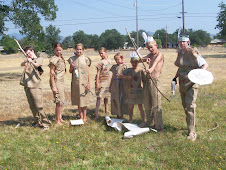

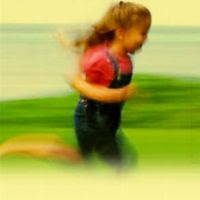
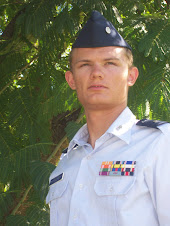
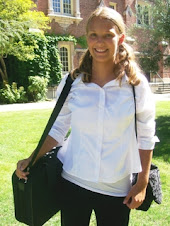
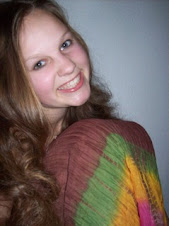

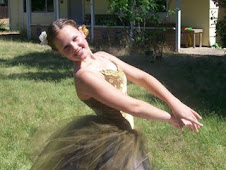
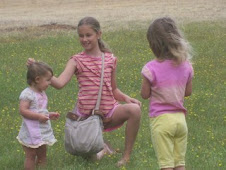
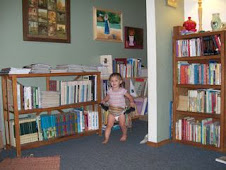
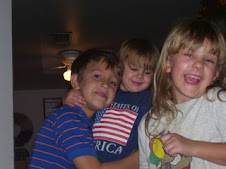
No comments:
Post a Comment